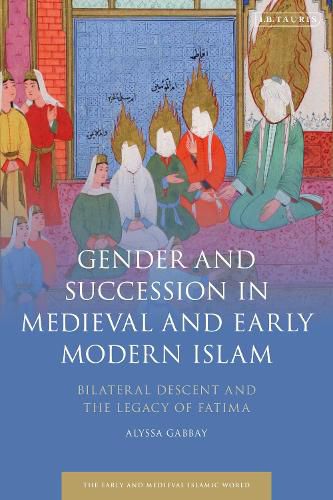Readings Newsletter
Become a Readings Member to make your shopping experience even easier.
Sign in or sign up for free!
You’re not far away from qualifying for FREE standard shipping within Australia
You’ve qualified for FREE standard shipping within Australia
The cart is loading…






In Gender and Succession in Medieval and Early Modern Islam: Bilateral Descent and the Legacy of Fatima, Alyssa Gabbay examines episodes in pre-modern Islamic history in which individuals or societies recognized descent from both men and women. Fatima, daughter of the Prophet Muhammad, features prominently in this study, for her example constituted a striking precedent for acknowledging bilateral descent in both Sunni and Shi'i societies, with all of its ramifications for female inheritance, succession and identity.
Covering a broad geographical and chronological swath, Gender and Succession in Medieval and Early Modern Islam presents alternative perspectives to patriarchal narratives, and breaks new ground in its focus upon how people conceived of family structures and bloodlines. In so doing, it builds upon a tradition of studies seeking to dispel monolithic understandings of Islam and Gender.
$9.00 standard shipping within Australia
FREE standard shipping within Australia for orders over $100.00
Express & International shipping calculated at checkout
In Gender and Succession in Medieval and Early Modern Islam: Bilateral Descent and the Legacy of Fatima, Alyssa Gabbay examines episodes in pre-modern Islamic history in which individuals or societies recognized descent from both men and women. Fatima, daughter of the Prophet Muhammad, features prominently in this study, for her example constituted a striking precedent for acknowledging bilateral descent in both Sunni and Shi'i societies, with all of its ramifications for female inheritance, succession and identity.
Covering a broad geographical and chronological swath, Gender and Succession in Medieval and Early Modern Islam presents alternative perspectives to patriarchal narratives, and breaks new ground in its focus upon how people conceived of family structures and bloodlines. In so doing, it builds upon a tradition of studies seeking to dispel monolithic understandings of Islam and Gender.